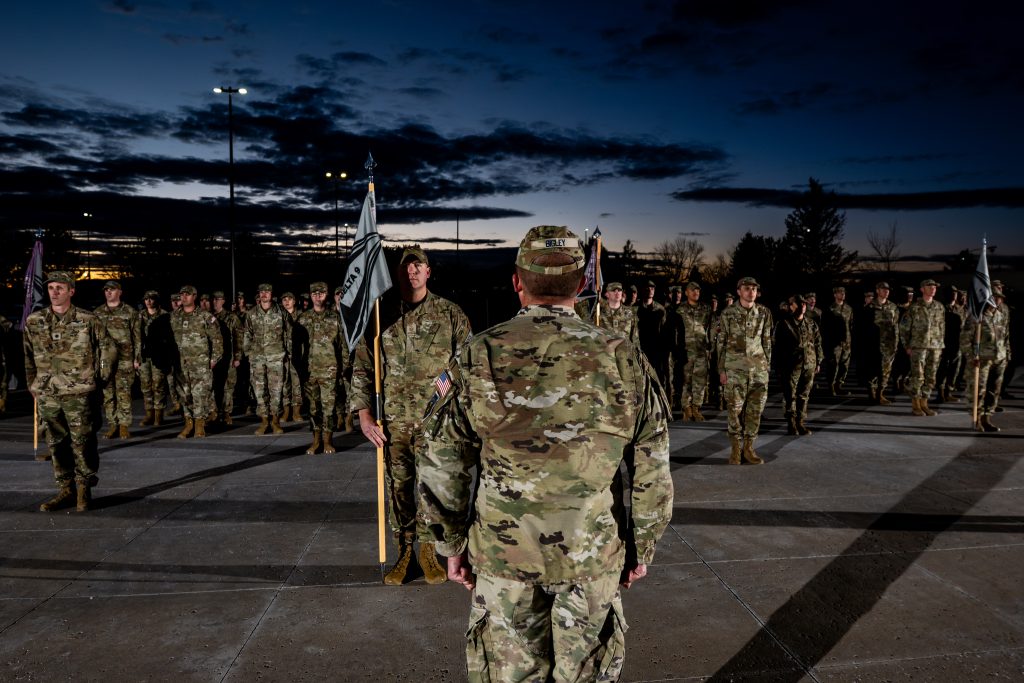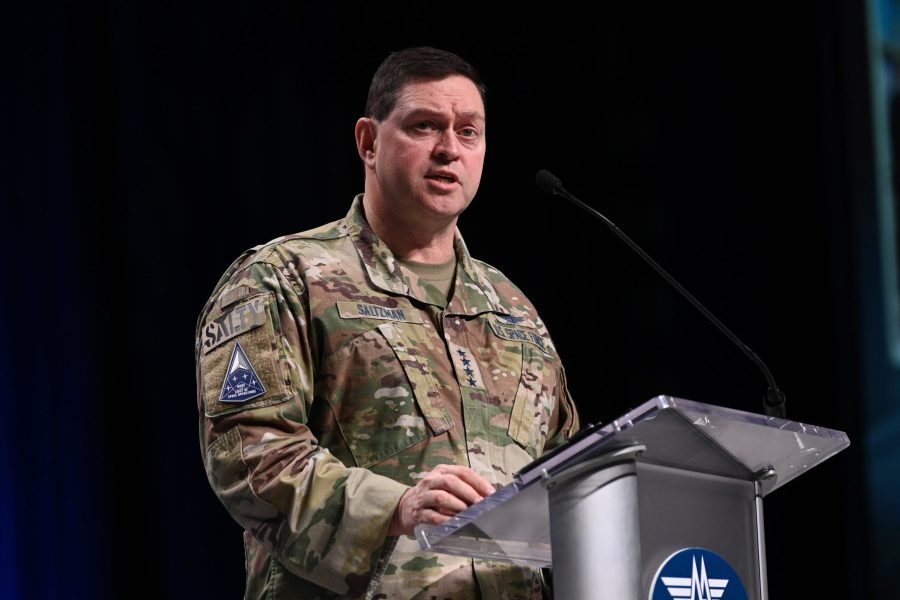AURORA, Colo.—The Space Force has no plans to follow the Air Force in introducing a warrant officer corps to its ranks, Chief of Space Operations Gen. B. Chance Saltzman said Feb. 13.
Air Force Chief of Staff Gen. David W. Allvin first announced Feb. 12 at the AFA Warfare Symposium that the service will be rolling out a warrant officer program for its cyber and IT career fields. Warrant officers fill top technical, rather than leadership, functions and can earn more than enlisted personnel.
The move was met with excitement among Airmen at the conference and on social media, raising questions as to whether the Space Force would follow suit or stand alone as the only service not to have warrant officers.
In a media roundtable, Saltzman said factors unique to the Space Force made the warrant officer idea a non-starter for now.
“We don’t see a need to have warrant officers at this point. Because of the way we were designed, all of our enlisted personnel have very technical paths,” Saltzman said. “And so we feel like there’s other avenues to provide them the compensation they need.
“And at some point, how small can a career field or a rank be before it’s too hard, it’s too onerous to manage administratively? So we’re not pursuing that right now.”
The Space Force has only a few career fields, all within space operations, intelligence, cyber, engineering, and acquisition, and relies on the Air Force for service support functions. It is also far smaller than any other service—Saltzman noted during his keynote address at the conference that the Space Force accounts for just one percent of the Department of Defense’s active-duty personnel, at fewer than 9,000 uniformed Guardians.

Proponents of warrant officers say the option helps to retain service members with valuable experience and knowledge in technical fields who don’t want to deal with the traditional leadership functions of officers but could make substantially more in the private sector than they could in the enlisted ranks.
For example, the DOD’s 2024 pay scale offers $5,792 in basic pay per month to warrant officers in the W-2 grade with 10 years of service, compared to $4,886 for an E-7 with the same level of experience.
However, the Space Force is planning to expand certain bonus programs like retention bonuses and assignment incentive pay. According to fiscal 2024 budget documents, the Space Force plans on paying out $8.3 million in special pays for its enlisted corps this year, compared to $4 million in fiscal 2023.
But while the Space Force is spurning warrant officers for now, it is moving forward with a new personnel management system that will be unique within the military in allowing Guardians to shift between full-time and part-time status.
“The ability, over the course of your career, to move between full-time and part-time work is there, and we want to pursue those kinds of flexible career paths options,” Saltzman said.
Such an arrangement could offer Guardians the ability to have jobs outside the military where they can put their specialized skills and knowledge to use. But it will take several years to finalize the administrative policies and systems necessary to make the new personnel management system work, Saltzman said.
“We have to be able to pull them over, put them in part-time status, and make sure we are giving them credit for part time work, accumulating towards retirement,” he said. “We need to understand how to pay part time people with what their pay structure looks like. Is this how many hours a week, or is it by position, etc.?”
In the meantime, Saltzman indicated he wants to aggressively pursue ideas for getting Guardians out into the private sector to stay abreast of the latest technological developments, whether it be through academic fellowships, job exchanges, or some other mechanism. Such moves, he said, will increase job satisfaction while ensuring service members don’t feel that they are falling behind their peers in technical knowledge.
